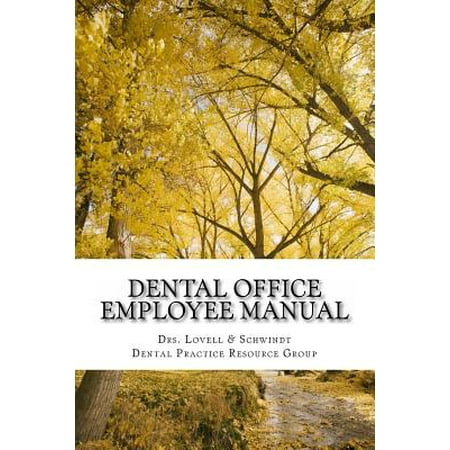Walmart Policies And Procedures
Buy Human Resources Policies and Procedures Manual at Walmart.com. Free Grocery Pickup Reorder Items Track Orders. Ellen's List Walmart Services Credit Cards Gift Cards Weekly Ad Tips & Ideas Help. Human Resources Policies and Procedures Manual. Average rating: 0 out of 5 stars, based on 0 reviews Write a review.

Wal-Mart refuses to carry smutty magazines. It will not sell compact discs with obscene lyrics. And when it catches customers shoplifting - even a pair of socks or a pack of cigarettes - it prosecutes them.
But now, in a rare display of limited permissiveness, Wal-Mart is letting thieves off the hook - at least for up to $25 worth.
According to internal documents, the company will no longer prosecute first- time thieves unless they are 18 to 65 years old and steal merchandise worth at least $25, putting the chain in line with the policies of many other retailers.
Under the new policy, a shoplifter caught trying to steal a DVD of the movie 'Basic Instinct 2' ($16.87), for example, would receive a warning, but one caught stealing 'E.R. - The Complete Fifth Season' ($32.87) would face arrest.
Wal-Mart said the change would allow it to focus on theft by professional shoplifters and its own employees, who together steal the bulk of merchandise from the chain every year, rather than the teenager who occasionally takes a candy bar from the checkout counter.
Continue reading the main storyIt may also serve to placate small- town police departments around the United States who have protested the company's policy on shoplifting, under which employees invariably summoned officers, whether a customer tried to steal a $5 toy or a $5,000 television set.
The police make as many as a dozen arrests a day at some of the chain's giant 24-hour stores, prompting a handful of departments to hire an additional officer just to deal with the extra workload.
'I had one guy tied up at Wal-Mart every day,' said Don Zofchak, chief of police in South Strabane Township, Pennsylvania, which has 9,000 residents and 16 officers. He said the higher threshold for prosecution 'would help every community to deal with this.'
J.P. Suarez, vice president for loss prevention at Wal-Mart, said it was no longer efficient to prosecute petty shoplifters.

Walmart Employee Handbook
'If I have somebody being paid $12 an hour processing a $5 theft, I have just lost money,' he said. 'I have also lost the time to catch somebody stealing $100 or an organized group stealing $3,000.'
Still, the new policy, which became effective in March, is in many ways a striking departure from Wal-Mart custom. The company had proudly defended its aggressive prosecution of shoplifters, saying it helped hold down prices.
Newsletter Sign Up
Continue reading the main story
Thank you for subscribing.
An error has occurred. Please try again later.
You are already subscribed to this email.
- Opt out or contact us anytime
'Other retailers might offset the cost of shoplifting with higher prices,' a spokeswoman said in a 2004 interview. 'But we don't do that.'
Indeed, Wal-Mart's zero-tolerance policy can be traced to its founder, Sam Walton, who tied employee bonuses to low theft rates at stores. Stolen merchandise, he wrote in his 1992 autobiography, 'is one of the biggest enemies of profitability in the retail business.' Walton boasted that the amount of merchandise lost to theft at Wal-Mart was half the typical retailer's rate.
Over all, U.S. retailers lose $34 billion a year to theft, according to the National Retail Federation, a trade group.
Suarez, the Wal-Mart vice president, said there was 'overwhelming' employee support for the new policy as more effective in deterring theft.
Wal-Mart is not alone in giving shoplifters some leeway. Its new policy 'is consistent with guidelines many retailers use,' said Joseph LaRocca, vice president for loss prevention at the National Retail Federation.
Retailers, he said, have learned that prosecuting small shoplifting cases 'does not warrant the store resources or the judicial resources required, given the dollar amount that was stolen.'
In some cases, loss prevention executives said, retailers will prosecute only shoplifters who steal at least $50 or $100 worth of merchandise. The legal costs required for prosecution, they said, are simply too high. Stores must hire a lawyer for employees who become witnesses in a trial, for example, and pay workers overtime to appear in court.
Until now, they said, Wal-Mart was the exception. 'They would arrest somebody for stealing a pair of socks,' said Zofchak, the police chief in South Strabane Township. 'I felt we were spending an inordinate amount of time just dealing with Wal-Mart.'
Since Wal-Mart began its new shoplifting policy, arrests have fallen at the store in Harrisville, Utah, according to the authorities there. But Harrisville's chief of police, Maxwell Jackson, still prefers the old rule. 'Once the word goes out that there is a dollar limit,' he said, 'there will be more stealing.'